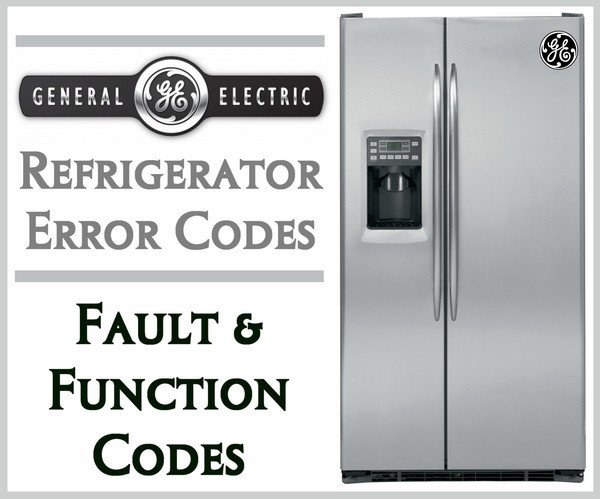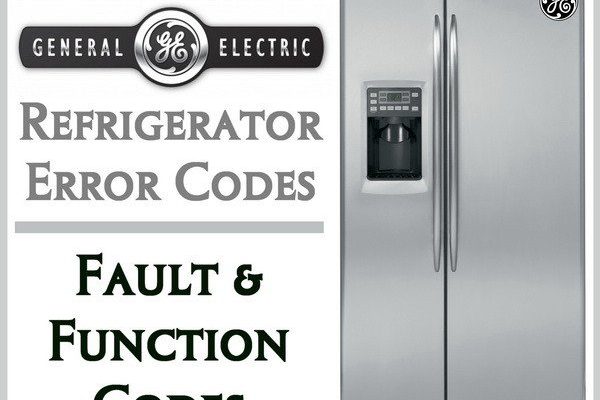
The F1 error code on GE refrigerators typically indicates a problem with the refrigerator’s control board. Think of the control board as the brain of your refrigerator—it manages all the complex functions and keeps everything running smoothly. When an error like F1 pops up, it’s the fridge’s way of saying that its brain might be in trouble. Ignoring this could be akin to ignoring a “check engine” light in your car. Sure, you might still get where you’re going for a while, but the risk of a breakdown lingers.
So, you might be wondering: Can you really afford to ignore this error? The short answer is no, and we’ll explain why. Dealing with it sooner rather than later can prevent a small glitch from turning into a major headache.
Understanding the GE Refrigerator Error Code F1
The F1 error code is essentially a distress signal from your refrigerator. It’s important to understand that appliances, just like people, have ways of communicating issues. When your GE fridge flashes F1, it’s similar to when your smoke detector chirps to signal low battery—it’s a warning that something needs attention.
The root cause of an F1 error is often linked to a fault in the main control board. This board controls various functions such as the temperature settings, defrost cycle, and even the ice maker. Imagine if the conductor of an orchestra got distracted; it would affect the entire symphony. Similarly, if the control board malfunctions, it can disrupt the fridge’s harmony, affecting its ability to keep things cool or even run at all.
If this issue is left unchecked, it could lead to inconsistent cooling, which might spoil your food. What’s worse is that ignoring this problem could result in a complete refrigerator shutdown, leading to more extensive damage. So, addressing the F1 error code promptly is not just advisable—it’s essential.
Causes and Consequences of Ignoring the F1 Error
You might be tempted to dismiss the F1 error as a minor hiccup, but there are several repercussions of doing so. One of the primary causes of the F1 error is a failed relay on the control board. This is similar to a switch that doesn’t flip properly, causing processes to stop midway.
Ignoring this error can lead to increased energy use. A malfunctioning control board might cause the fridge to run continuously, much like how a leaky faucet wastes water. This can spike your electricity bill, just as a drip-drip-drip can add up over time.
Moreover, failure to address the F1 error can lead to further deterioration of the control board. Imagine a small hole in your roof. Left unrepaired, it grows bigger with every storm. Similarly, the malfunction can escalate, potentially damaging other parts of the appliance. This could mean more costly repairs or even necessitate a full replacement of your refrigerator.
What to Do if You See the GE Refrigerator Error Code F1
If your GE refrigerator gives you the F1 alert, don’t panic. Instead, take a deep breath and consider your options. The first step is often as simple as resetting your fridge. You can do this by unplugging it for a few minutes, then plugging it back in. Think of it as giving your fridge a little nap—it might just wake up feeling better.
If resetting doesn’t resolve the issue, it’s a good idea to consult the user manual or visit the GE website for specific troubleshooting guidance. You may need to call in a professional technician if the error persists. It’s like calling a doctor when a headache just won’t go away; sometimes expert intervention is necessary.
Taking preventative care of your refrigerator can also go a long way. Regular maintenance, such as cleaning the coils, checking the seals, and making sure you don’t overload the fridge, can prevent many issues. It’s the same as keeping your car well-oiled and fueled; regular upkeep ensures long-term health.
In conclusion, while it might be tempting to ignore the GE refrigerator error code F1, it’s not a wise choice. By addressing the issue head-on, you not only extend the life of your appliance but also ensure your food stays fresh and your home energy-efficient. So, take the F1 error seriously, and your refrigerator will thank you for it!
